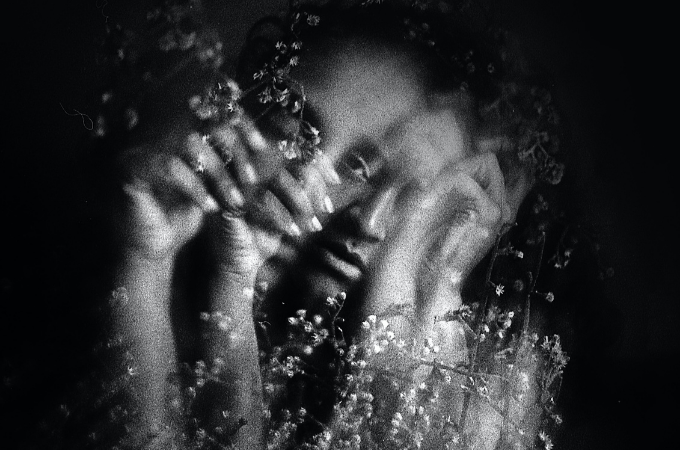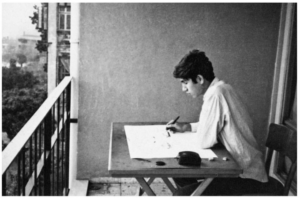
TW: mental illness
“Your mother is sick.”
I clearly remember the look on my father’s face as he said those words. Almost like I am six again, with four of my front teeth missing, as I struggle to say the words “where is mummy?” I can still feel his breath seize when my chubby hands reached out to wipe the tears he didn’t know escaped.
“She won’t be coming home for a long while,” he said, finally letting loose the emotions he desperately tried to hide from us. I didn’t know what he meant; I was still a child. Six months later, mummy came back with a bald head and a huge smile—enveloping my brother and me in a warm embrace.
“I missed you both so much.” I heard the crack in her voice, and deep down I knew all wasn’t well, something felt wrong. She came with goodies like she always did whenever she ‘went away’, and I guess that was enough of a distraction for me not to notice how thin she looked, how hollowed her cheeks had become. I ignored the lifelessness of her eyes, and I didn’t even notice the huge scar on her head.
They all made sense to me years later, when I was standing by her grave and was told to tell everyone who she was. No one really knew her. She was both fire and ice, wind and the earth. She was everything and nothing at the same time. She embodied life, yet death lived in her. But rather than say all this, I told them how good of a mother she was. That was all they cared about anyway. Her worth was tied to being a mother.
The next time she fell sick, I was home to witness it. I was prepared to go to school that day when she stopped me by the door and begged me not to go. Her hair was a mess, and it looked like she had been crying. “They are coming to take you from me. She just told me,” she said pointing to the ceiling. She looked really scared. That was my first encounter with fear. I saw first-hand how it cripples the mind, how it leaves one shattered. My father tried removing me from her grip, but with every attempt, her grip on me became tighter. It took a week of house calls from a nurse, and after administering drugs and injections she calmed down.
On the last day, the nurse looked at her and said, “Now your children know you are mad”. I stood by the door and watched my mother immediately turn her back once she saw me. I didn’t understand the effect of what the nurse said, till I was at the morgue registering my mother’s body years after, and the memories of that day shattered what grief refused to touch. I watched the morticians look at the piece of paper stating the cause of death, and I ignored the sorries I was given. They shouldn’t be apologizing to me, I wasn’t the one without a happy ending. But how can one get a happy ending when there was never a joyful beginning.
She fell “sick again” when I was in secondary school. Drugs didn’t work, and the voices became louder—more demanding. The faces became clearer, sometimes they wore the faces of the people she loved. So, we travelled to the village in search of a cure. That was a bad idea, she became worse. I saw the way people looked at her whenever they came to her father’s house and found her chained like a dog, I heard them make fun of her whenever she claimed to see people. “They live here”, she always said—pointing to her head, “they don’t go away. They just stop talking”.
If I am ever asked about the worse day of my life, I won’t talk about the day she died, it was never that. It was the day she felt she had to die to save me. I watched her jump into a well, because “the voice” told her he would kill me if she didn’t. That very day, her father disowned her, calling her an abomination. She got better, or rather the voices stopped talking for a while. So, we went back home and hoped for the best—it never came. I followed her to the hospital quite a lot and I witnessed how people with mental illnesses were treated by healthcare practitioners. One once told me, I’d end up exactly like her. It didn’t matter to me, but I saw it mattered to her. She fasted and prayed the voices away, but they only became louder. I never really understood all of this, till I was fighting for the doctor to bring her back.
I was once asked how it felt to watch my mother take her life. I never really said the truth. The truth is as unfathomable as the grief. I feel better knowing she does not hurt anymore. She is finally in a place where the voices won’t reach her, a place where silence is all she hears. She won’t hear them blame her children for her death. She’d be untouchable, away from the betrayal of family. I am happy she is finally away from the judging eyes of people who do not understand what it means to live with a mental illness. So, I accept the grief that knocks me off my feet whenever I think of her. It is a small price to pay considering she hurts no more.
Photo by Mariana Montrazi from Pexels










Ama August 20, 2022 06:41
This is an emotional piece. Great Work